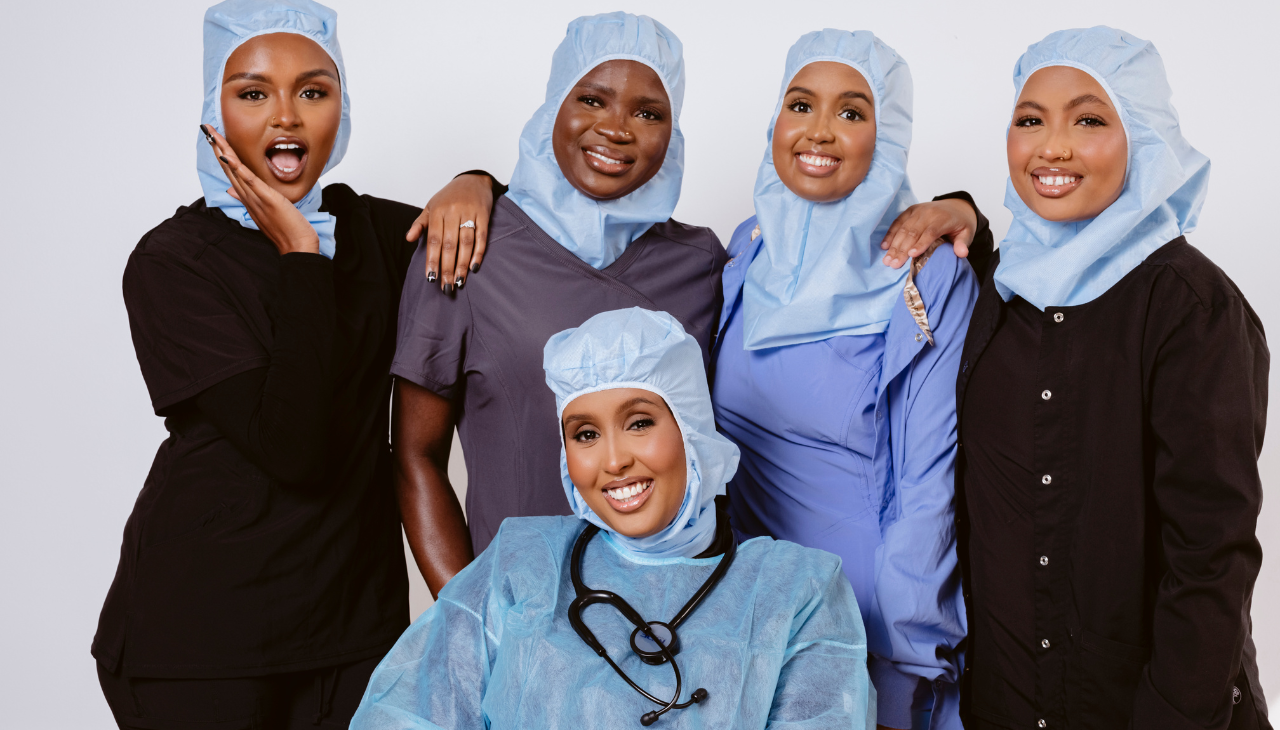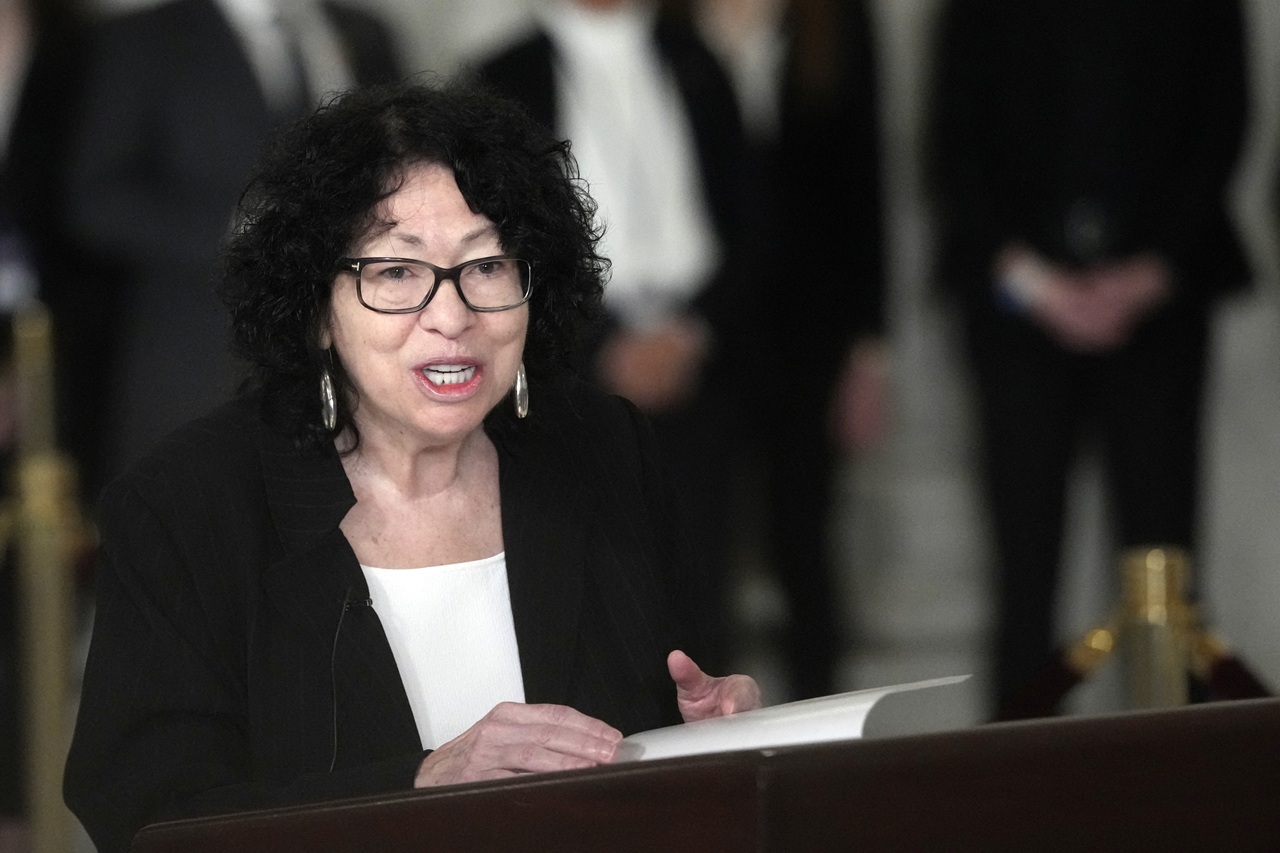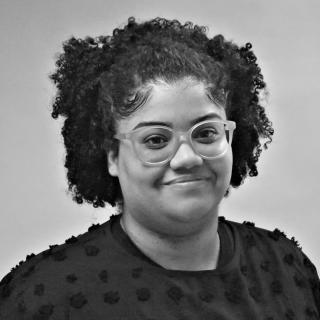
Mawadda Revolutionizing Healthcare with PPE that meets Hijabi religious standards
Two respiratory therapists based in St. Paul, Minnesota, have founded Mawadda, a company providing disposable hijabs that meets safety and religious standards.
Understanding the importance of having culturally conscious Personal Protective Equipment (PPE) propelled respiratory therapists Yasmin Samatar and Firaoli Adam to Co-Found Mawadda— a company providing disposable hijabs that meets safety and religious standards.
The Occupational Safety and Health Administration, or OSHA, defines PPE as the "specialized clothing or equipment worn by an employee for protection against infectious material.”
Samatar is a proud black Muslim Somali woman who graduated from St.Catherine University with a Bachelor’s in Respiratory Care.
Adam, who also goes by Urji, is a proud black Muslim Oromo woman who graduated from the same university and program alongside Samatar.
“We have experienced firsthand the frustration, worry, and loss of productivity caused by the lack of viable personal protective equipment for Muslim women,” they explained.
Mawadda’s mission is to champion and support diversity, equity, and inclusion (DEI) initiatives in the healthcare industry that meets both safety and cultural requirements.
Samatar and Adam explain that during the COVID-19 pandemic, PPEs were reinforced for healthcare workers to prevent and contain the spread of the virus. Unfortunately, the hijab is not included in the standard PPE manufacturing, which consists of gloves, gowns, shoe covers, head covers, masks, respirators, eye protection, face shields, and goggles.
The United States Department of Labor provides guidance for healthcare workers and employers, also including a disclaimer that “this guidance is not a standard or regulation, and it recreates no new legal obligations. It contains recommendations as well as descriptions of mandatory safety and health standards.”
According to the Centers for Disease Control and Prevention (CDC), “PPE is last in the hierarchy of prevention, it is very important for protecting healthcare workers from disease transmission.”
Samatar and Adam explain that whenever they entered a high-exposure area with a patient, their hijab entered too.
“Hijabs worn in the medical facilities were not a form of PPE, and left healthcare workers exposed to infectious fluids and diseases,” they emphasized. “So we led the charge to complete a patent pending bio-safe disposable hijab that is FDA compliant and most of all meets hijabi standards.”
RELATED CONTENT
Although, both women didn’t have a business background, they had to learn on their own how to operate and execute their business venture, which was possible due to community support who acknowledged the need for culturally conscious products that honored their religious belief as well.
It took two years for Samatar and Adam to be able to officially launch their product in November 2022—officially launching Mawadda, which the ladies explain “derives from the Arabic language which means deepest form of love, affection, sympathy, compassion, and harmony.”
Mawadda’s inauguration introduced its first collection the Hygienic Disposable PPE Hijab, which includes Znub, a pullover hijab with a snug fit, and Ikram, a wrap style with a snug fit.

Both women stress how patients shared their experiences in hospitals, expressing their concerns to “not having culturally conscious hospital attire provided to them and instead they were given a bed sheet in replacement of their hijab.” Therefore, Samatar and Adam continue to work tirelessly to promote culturally conscious products that uphold hijabi standards.
However, based on the CDC’s PPE protocol, it does not include a head covering product for healthcare workers, aside from face masks which fail to protect head exposure to infectious materials or environmental agents.
Samatar and Adam do intend on continuing to produce additional products tailored to meet hijabi standards.
“We plan to expand our product line to other sanitary wear for healthcare works overall especially meeting the needs of Muslim healthcare workers and patients,” Samatar and Adam assured.










LEAVE A COMMENT: